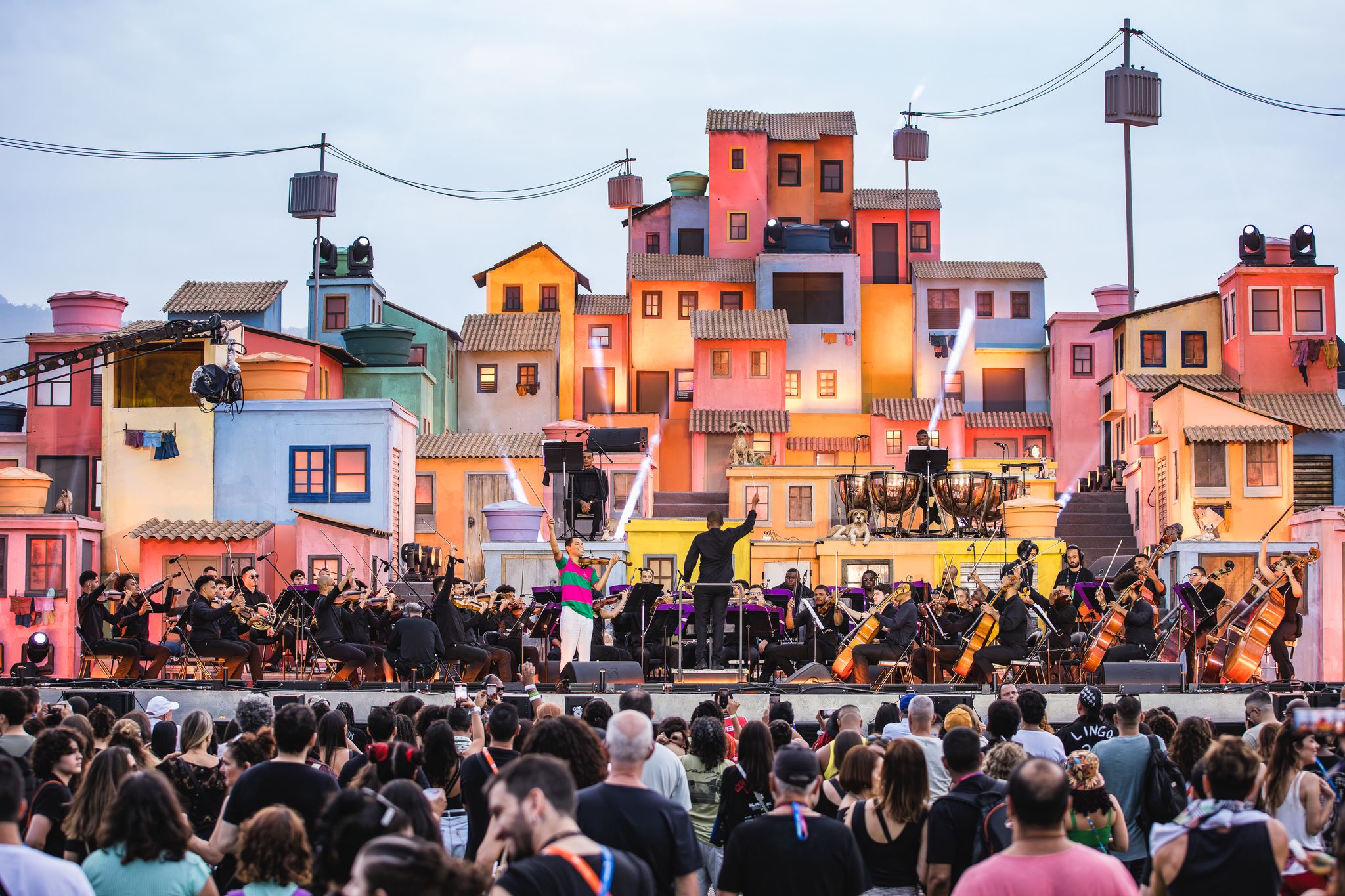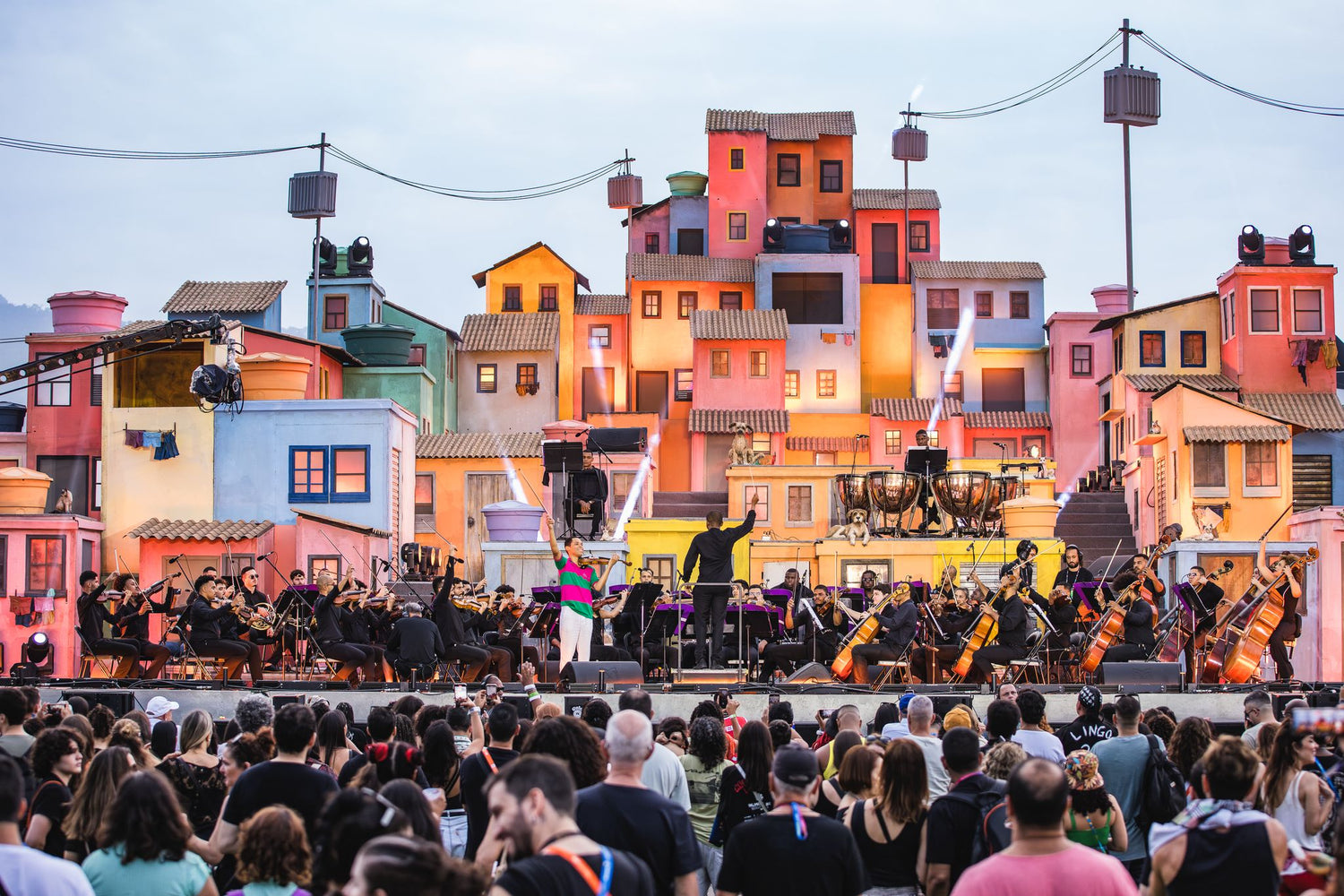Growing up in poverty in the favelas of Rio de Janeiro, a future as a classical musician was the last thing Coregami Ambassador Nathan Amaral ever imagined. When he was an infant, his father was killed in a police shootout. His mother, then just 17 years old, did her best to raise her son, but she was also taking care of her little sister (Amaral’s aunt, who was only 14), and opportunities were slim.
Worried about Amaral following the same path as his father, she shuttled her son through a variety of pro-bono social programs, doing anything she could to keep him occupied and off the streets. “My mother tried to keep me involved in activities constantly,” he said. “Swimming, volleyball, soccer, martial arts, I did everything I could.”
One day, while playing soccer with some friends, 12-year-old Amaral was noticed by an adult from a community project, an initiative to foster interest in classical music. A few days later, the man knocked on the door of his house. “He asked if I would like to play the violin,” Amaral recalled. “And I was like, ‘What? What is that, anyway?’ I had no idea what this man was talking about.” None of Amaral’s family had ever played music, but the opportunity was free, and his mother encouraged him. So Amaral gave it a shot.
He soon realized that, although the project organizers meant well, they’d bitten off more than they could chew. “The first day, there were like 50 kids, and only five violins,” Amaral recalled, laughing. “So it was absolute chaos. You learn for one minute, then pass the violin on to the next kid.”

Once word got out, more and more kids began showing up, and the project grew even more hectic. At one point Amaral said there were “200 or more kids” there, all trying to learn from a few instructors with half-a-dozen violins. This social project was a wonderful opportunity, but it was unsustainable. “Even if you are a kid who enjoys playing and you have talent, it’s expensive,” he noted. “You have to buy the strings, the materials, everything costs money. It’s unsustainable.”
Luckily, one of the instructors picked Amaral out of the pack. She noticed he had the makings of real talent, coupled with discipline and a strong desire to learn. She began tutoring him one-on-one, for five or ten minutes after the group sessions ended. When he showed promise at these private lessons, the woman recommended him to her teacher and—with financial sponsorship from the social project—he was able to attend private lessons with this new instructor.
By this point, Amaral was 13 years old, and studying violin wasn’t simply something he was doing because it was free, or because his mom was encouraging him. He loved playing, and had begun dreaming of a career in music. These new lessons were helping him, but attending them was a logistical nightmare. “I had to travel two hours to have 15 minutes of lessons, then two hours to come back,” he recalled.
And unlike the social project organizers, this instructor, Amaral said, was “very good,” but was only interested in money. He was only giving Amaral lessons because the social project was sponsoring them. When the project’s funding collapsed, Amaral’s instructor kicked him to the curb (and also took back the violin he’d given his student to practice on). Game over.

Amaral tried to bargain with his stingy instructor, and for a few months he managed to keep his lessons funded in fits and starts by working odd jobs—building houses with his uncle, washing cars, and selling knick knacks on the streets of the favela. “I tried everything to be able to afford my lessons,” he said. “But it didn’t last.”
Out of options, Amaral ultimately quit playing the violin. Luckily, after a year or so, another violin teacher heard his story through the grapevine. There was a kid in the favela with raw talent, who just needed someone to give him a chance. This teacher wanted to help, and offered to teach Amaral for free. The catch? The guy lived eight and a half hours away by bus. Amaral had to take a 17-hour round trip bus ride, each time, to study under him.
And he did. Once a month, he took the bus to this teacher’s house, stayed there for a few days to a week, and then took the bus back. He was learning and improving, and trying to remember as much as he could, but this, too, was too much. He was missing school, missing work, he was torpedoing everything else in his life just to learn the violin. So he ultimately called it quits with this instructor, too.
By this point, Amaral began to become convinced that, despite his dreams, a music career was simply out of reach. “I felt that because of my financial situation, where I was born, this future was just not possible for me,” he said.
Now aged 16, he began to focus full-steam on earning a merit scholarship to attend university and study information technology (IT). “I was trying very hard to pursue academics,” he recalled, “but I was also depressed. I really wanted to play the violin.” So when he sent out his university applications, he decided, “Why not apply to a few music schools as well? What’s the worst that could happen?”
(Well, whatever “the worst” was, it didn’t happen. Amaral was accepted in first place, with scholarship, to the music program at the University of Rio de Janeiro.)
From here, life became a whirlwind. His teachers began seeing that his raw talent outstripped their capabilities to teach, and kept bumping him up the ladder. He went on to study in São Paulo, and later earned a scholarship to transfer to Mozarteum University in Salzburg, Austria. He moved there, without speaking a word of German, and finished his undergraduate degree.

Amaral won several awards in Salzburg, worked hard, and landed successive scholarships to continue studying. After undergrad, he moved to Berlin, and later Boston, where he studied at the New England Conservatory under acclaimed violinist Donald Weilerstein. All the while, he racked up a staggering string of prizes and competition wins.
Today, aged 29, Amaral splits his time between Boston and London. He has performed as a soloist with the Boston Symphony Orchestra, the Philadelphia Orchestra, and Philharmonia Orchestra, among others, and was named one of Classic FM’s 30 under 30 Rising Stars. Last year, he earned first place in the prestigious Sphinx Competition, which is programmed by Coregami Ambassador Andre Dowell.
(Amaral is also, of course, an ambassador for Coregami. He says that our shirts changed the way he thought about concert apparel. “Before Coregami, I never found a shirt that let me play my instrument freely,” he said. “I've always found concert shirts a little too constricting, or not breathable, or because I have long arms, for example, the sleeve will get caught on my elbow when I play. I always felt that concert clothes were uncomfortable, and that that was just the way they were, until I tried Coregami shirts. Now, I only wear Coregami in concerts and performances. It’s a combination of efficiency, elegance and beauty. I absolutely love it.”)
In an introduction video on his website, Amaral speaks about how music brought “power” into his life. When I spoke with him by phone earlier this year, I asked him to explain that power. “Sometimes we feel like we are drawn to our destiny based on where we are born, our circumstances,” he told me. “We think of ourselves as victims of a system, which may make us doubt our potential, our ability to be successful.”
“I believe knowledge is power,” he added. “My mother taught me this when I was very young. Education opens doors. It gives you the ability to pursue your own path. I didn't know what my life was going to be like, what paths I would be able to pursue, but I knew if I learned, if I educated myself, nobody could take that away from me. So I studied really, really hard. I learned English by myself. I practiced violin as much as I could. I did everything in my power to develop myself as a human, as an artist. Life can take away all your things, your house, your car, your money. But nobody can take away what you learn."
Despite all his success, Amaral hasn’t forgotten about his roots in Brazil, either. In 2021, he founded an annual, weeklong musical festival, SIM (Semana de Integração Musical / Week of Musical Integration) to support and teach young musicians from impoverished backgrounds in Brazil. Every year, for this festival, he returns to Brazil and teaches music to kids in the favelas for free.
The festival has been a great success, and though funding is always a struggle, Amaral is optimistic about the future. “It’s been a journey, but it’s growing, and I believe it will continue to grow,” he said.
When speaking to this next generation of musicians, he told me his biggest piece of advice is, “Never let anyone tell you something is impossible. Look at me, right? I’m proof of this.”
In the grand scheme of life, Amaral is still quite young, but he’s learned over the years to avoid planning too far ahead. Working hard in the present, he says, is far more effective than making elaborate plans for the future. “I’ve learned not to guess what my life is going to be. Instead, I let life show me what my next challenge is, and then I go for it.”






